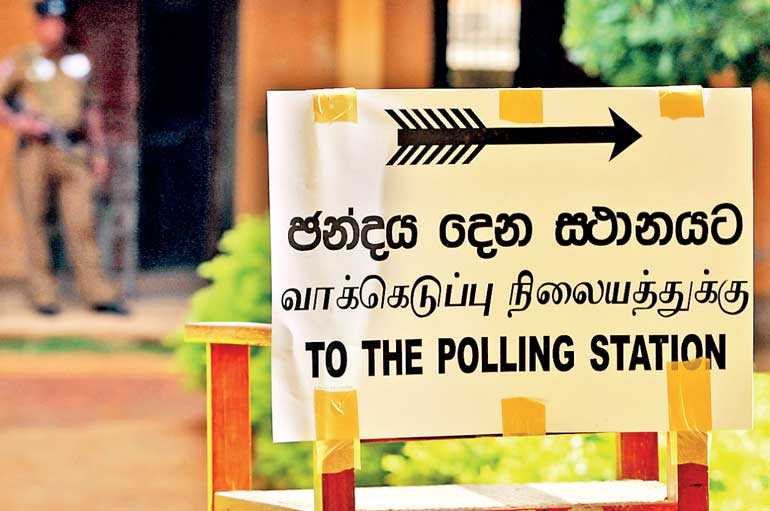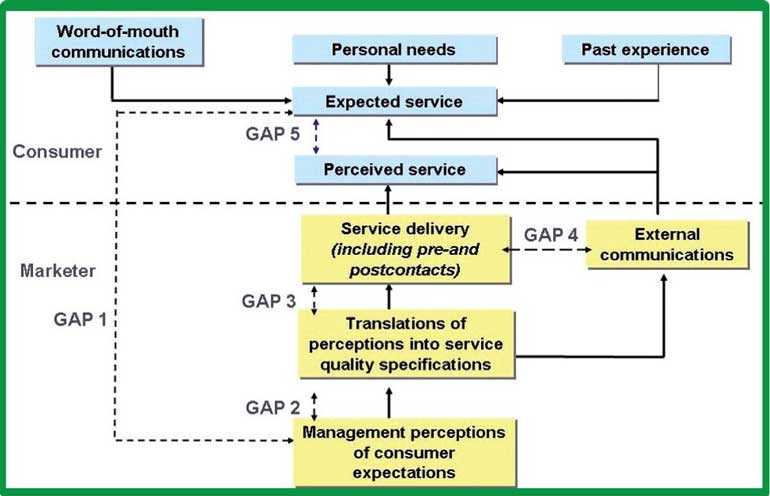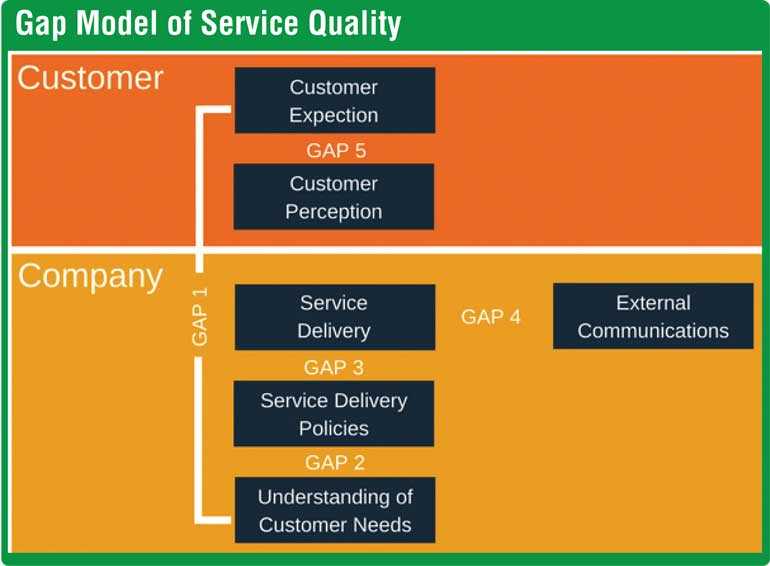Monday Feb 23, 2026
Monday Feb 23, 2026
Wednesday, 16 October 2019 00:45 - - {{hitsCtrl.values.hits}}

Political marketing campaigns must refrain from exaggerated messages and overpromising what is not attainable with the given resources and within the timeframe for the sake of winning elections

The Presidential race is taking momentum, which is further intensified by the eagerness to see what would be the role of the new President elected under the 19th Amendment of the Constitution.
Of course, the Presidential race has only two possible probabilities of outcomes, either winning or losing. Hence, given the competition of winning the race, marketing strategies and tactics are heavily used, whereas agencies for developing marketing strategies and advertising are contracted by the political parties or presidential candidates who want to run and win the battle.

Political marketing
According to father of modern marketing, Philip Kotler, “Political campaigns have increasingly been compared to marketing campaigns in which the candidate puts himself on the voters’ market and uses modern marketing techniques, particularly marketing research and commercial advertising, to maximise voter ‘purchase’.”
Although marketing has emerged as central role of political campaigns and is reshaping the modern day politics by greatly expanding the amount of new sources of information, enhancing voter engagement, making numerous contributions to the political arena, it also has some controversial issues evident from recent well-known campaigns in the world on the way it is planned and handled to bring undesired outcomes, which perhaps undermine the national interest and tarnish democracy.
‘Our Brand is Crisis’
Recently, when I was a passenger of Air China, travelling from Beijing to Shanghai. I was able to watch ‘Our Brand is Crisis’, a film directed by David Gordon Green and acted by Sandra Bullock, which brings to light how the American political campaign strategists were involved in the 2002 Bolivian Presidential Election.
In 2002, Bolivian politician Pedro Castillo hires an American political consulting firm to help him win the Bolivian Presidential Election. The firm brings in Jane Bodine (Sandra Bullock) to manage the campaign in Bolivia where they follow a strategy of smear campaigning and exercise a strategy of declaring a crisis. They were also planning on frightening the people, so they would be persuaded to vote for the unsympathetic but known Castillo rather than the younger oppositions’ candidates.
Broken promises
There was also a protest made by the public who did not want the International Monetary Fund (IMF) in Bolivia, for which Castillo promised that the IMF will not be invited without a referendum. Finally, Castillo wins the vote and becomes the President of Bolivia, and as one of his first actions, he invites the IMF, thereby breaking his promise.
Political marketing consultant – Not responsible!
Having observed the breaking of promises by the new President, Bodine says that she is not responsible for actions of the new President and in her eyes, her job is done as a consultant responsible for the political campaign.
Thereafter there was also a demonstration by the people, demanding for needed change, which quickly turns into a riot, leading to unrest in Bolivia, which is the sad part of the story.
On the other hand, political consultants who were involved in the campaign which finally ended in crisis and civil unrest in Bolivia had jobs in other countries – which is surprising.

Presidential campaign 2015
Although what happened in Bolivia in the movie was just fiction, I was thinking that the live action show was in Sri Lanka as the film directed my memory to recall the 2015 Sri Lankan Presidential Election campaign, showcasing the need for change through ‘Maitri yugaya’ and ‘Yahapalanaya’ and the dawn of a new corruption-free Sri Lanka with strengthened rule of law, leading to economic prosperity. This set new hopes and greater expectations for many patriotic Sri Lankans to vote with such aspirations.
By then, as I heard the announcement that the flight is getting ready to land at Shanghai International Airport, I’d changed my attention towards fastening the seatbelt.
Application of SERVQUAL Model
Although SERVQUAL (Gap) model is used in commercial ventures, particularly in the service industry, the writer interestingly tries the applicability of the model in the context of political marketing campaigns of the presidential candidates, and thereafter the delivery of promises to the public after becoming the president.
Let us consider the ‘Yahapalanaya’ campaign and the associated delivery of promised service to the public using the well-recognised SERVQUAL model developed by Zeithaml and Parasuraman to capture the expectation of the voters and their perception of service delivery and associated satisfaction levels of the voters which may ultimately lead to trust and loyalty. Identifying the gaps would help to improve upcoming presidential campaigns and the associated delivery of the promises.
Indeed, public evaluation of service is based on the gap between the public expectations from promises, advertisement, and word of mouth, etc., and assessment (perception) of the service actually delivered during the tenure as the president will either positively result in satisfaction, favourable word of mouth, and loyalty, or negatively result in dissatisfaction, negative word of mouth, and disloyalty.
Gap 1 – The Knowledge Gap is the distance between the public expectation of the service and what presidential candidates/political parties think of the public expectation.
Correctly identifying the public expectation or needs is fundamental in any political marketing campaign. Conducting research to get the opinion of the voters, and increasing interaction with the general public or voters would help to narrow this gap.
Gap 2 – The Policy Gap is between presidential candidates’/political parties’ understanding (perception) of the needs of the public and the translation of that understanding into service delivery policies and standards.
Gap 3 – The Delivery Gap is the difference between service delivery policies and standards and the actual delivery of the service.
This may be considered as the most important gap as there are heaps of promises in the manifesto which are not delivered and sadly, no action was taken for some of the promises.
The president must be accountable for the mandate and promises given as well as should walk the talk.
The president should be visionary and provide leadership to the country to uplift national interest rather than limiting it to the interest of his/her political party or own district.
The president may appoint a capable team to make things happen and monitor and review them time to time in order to make sure that the promises are delivered.
Gap 4 – The Communication Gap is the gap between what gets promised to the public and what gets delivered. In many political campaigns, including the Yahapalanaya campaign, it is too exaggerated and overpromising of what would be done, and considered the best case scenarios rather than most likely occurrences.
This raises public expectations and the president should deliver on par with the raised expectations otherwise it may widen this gap, which may lead to more dissatisfaction and erode the trust in the president and his/her associated political party.
Indeed, it is also prudent to look at feasibility with the given resources, particularly the budget allocation, and given the nature of the economic situation of the country, the timeframe of the presidential tenure as well before making any promises.
Gap 5 – The Customer Gap is the difference between public expectations and public perceptions. This gap occurs because sometimes, the public does not understand what the service has done for them or they misinterpret the service quality.
Public expectations have been shaped by word of mouth, their personal needs, and their own past experiences. Routine surveys after delivering the experience are important to measure the public perceptions of service.
Conclusion
If the political marketing campaign is wrongly designed and implemented, it may distort public trust in advertising and promotion, which may in turn negatively impact the entire marketing management fraternity. Hence, it necessitates more and more ethical and social responsible marketing management practices for the presidential marketing campaigns.
Political marketing campaigns must refrain from exaggerated messages and overpromising what is not attainable with the given resources and within the timeframe for the sake of winning elections.
The president who wins the upcoming Elections should deliver what is promised to the general public and be more accountable for it. They should walk the talk and uplift public interest rather than self-centred political affairs.
Bringing in the wrong person for the topmost position of our country – the president with the most colourful advertising – will not only undermine national interest and tarnish our democracy, but also stagnate our nation’s development and quality of life for ourselves and our children.
(The writer is a Marketing Management Professional and an Assistant General Manager of a leading organisation. He is a Chartered Marketer and Member of CIM (UK) as well as Sri Lanka Institute of Marketing. The thoughts are the writer’s own views and do not reflect any organisation he serves. It is not intended to hurt any individual or party. You can share your feedback by emailing [email protected].)